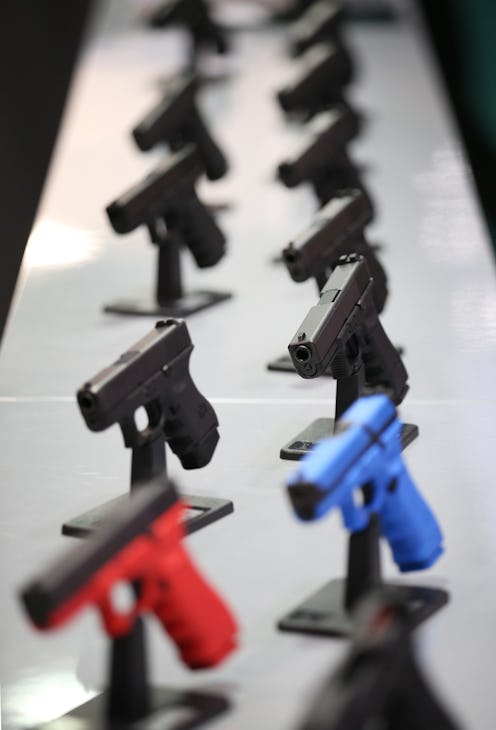News
Did The Virginia Shooter Buy A Gun Legally?
When Vester Lee Flanagan opened fire on a local WDBJ7 news crew near Roanoke, Virginia, on Wednesday, he fired 15 shots from a Glock handgun, killing two of his former coworkers from the news station. According to Thomas Faison, a spokesman for the Bureau of Alcohol, Tobacco, Firearms and Explosives, Flanagan bought the gun legally; Flanagan said before his death that it was directly after the Charleston shooting in June. On Wednesday night, victim Alison Parker's boyfriend, Chris Hurst, told Fox News' Megyn Kelly that Flanagan had been known to be "volatile." On the day he was fired from WDBJ, in fact, the police were reportedly called to escort him from the building. Yet despite his somewhat shady background, Flanagan was able to buy a gun legally because his criminal record was clean, or at least clean enough to pass Virginia's standards.
In a 23-page document that Flanagan faxed to ABC News to tell his side of the story, he wrote, "Why did I do it? I put down a deposit for a gun on 6/19/15. The Church shooting in Charleston happened on 6/17/15..." Flanagan also referenced the shooters in the Virginia Tech and Columbine High School massacres.
The clues that Flanagan left behind in his manifesto, as well as the less-than-surprised reactions of people who worked with him in the past, beg the question: Why was this man allowed to have a gun?
In Virginia, licensed firearms dealers are required to run criminal background checks in several different government databases before allowing a customer to purchase a gun. These scans check for things like restraining orders, history of mental illness, and wanted persons reports. The seller of the firearm can run these searches online from the store — if the system finds a red flag, it alerts the seller and a deeper investigation must be done to determine if the customer is legally eligible to purchase the gun. It's important to note that buyers don't have to undergo background checks if they're buying at a gun show, however.
Despite Flanagan's reputation among people who worked with him, it seems that the Virginia authorities technically had no reason to prevent him from buying a gun. Flanagan had filed a lawsuit against a previous employer, a news station in Tallahassee, alleging discrimination, but the case was dismissed. The Guardian has reported that Flanagan had no criminal record. He had a minor incident in North Carolina in 2004 when he was caught driving with an altered or revoked driver's license and without the proper registration for his car, but that charge didn't prevent him from purchasing the gun.
Like many of the other shootings we've unfortunately seen in our country, including the ones that might have inspired Flanagan, Wednesday's tragedy has reignited the push for stricter gun control. On Wednesday morning, Virginia Governor Terry McAuliffe (D) vowed to continue to fight for gun reform in the commonwealth.
Everyone who purchases a gun in the Commonwealth of Virginia should have to go through a background check. You go into the store, you hand your license over. It doesn't take ... but three, four, maybe five minutes maximum.
In Flanagan's case, though, simply requiring everyone to undergo a background check might not have made a difference since he had no criminal record. Still, he certainly should have raised a red flag to someone, it seems.
